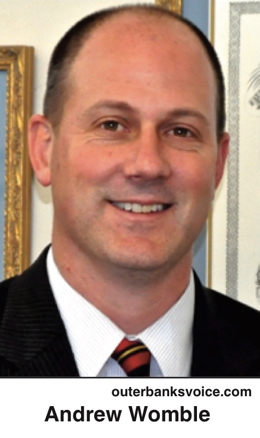Rascals case in brief
In the beginning, in 1989, more than 90 children at the Little Rascals Day Care Center in Edenton, North Carolina, accused a total of 20 adults with 429 instances of sexual abuse over a three-year period. It may have all begun with one parent’s complaint about punishment given her child.
Among the alleged perpetrators: the sheriff and mayor. But prosecutors would charge only Robin Byrum, Darlene Harris, Elizabeth “Betsy” Kelly, Robert “Bob” Kelly, Willard Scott Privott, Shelley Stone and Dawn Wilson – the Edenton 7.
Along with sodomy and beatings, allegations included a baby killed with a handgun, a child being hung upside down from a tree and being set on fire and countless other fantastic incidents involving spaceships, hot air balloons, pirate ships and trained sharks.
By the time prosecutors dropped the last charges in 1997, Little Rascals had become North Carolina’s longest and most costly criminal trial. Prosecutors kept defendants jailed in hopes at least one would turn against their supposed co-conspirators. Remarkably, none did. Another shameful record: Five defendants had to wait longer to face their accusers in court than anyone else in North Carolina history.
Between 1991 and 1997, Ofra Bikel produced three extraordinary episodes on the Little Rascals case for the PBS series “Frontline.” Although “Innocence Lost” did not deter prosecutors, it exposed their tactics and fostered nationwide skepticism and dismay.
With each passing year, the absurdity of the Little Rascals charges has become more obvious. But no admission of error has ever come from prosecutors, police, interviewers or parents. This site is devoted to the issues raised by this case.
On Facebook
Click for earlier Facebook posts archived on this site
Click to go to
Today’s random selection from the Little Rascals Day Care archives….
Click for earlier Facebook posts archived on this site
Click to go to
Today’s random selection from the Little Rascals Day Care archives….
District attorney to reexamine Little Rascals – or not?
 Jan. 11, 2015
Jan. 11, 2015
Before he turned back a challenge from Little Rascals prosecutor Nancy Lamb, incumbent District Attorney Andrew Womble had given me an inkling of hope he might consider revisiting the case.
This is from a letter I sent him on Sept. 11:
“In your Q&A with the Outer Banks Voice… you recalled ‘a pervasive mindset that the job of the district attorney was to prosecute all cases and to gain convictions. The Duke lacrosse case sort of changed that in my mind; the role of the district attorney is to seek justice.’
“Your thoughtful response leads me to ask how in retrospect you view the prosecution of Bob Kelly, Dawn Wilson and the rest of the Edenton Seven. Is Little Rascals a case you would have chosen to take to court, much less extend over eight years?
“Johnson Britt, Robeson County DA, recently disavowed the state’s allegations against two defendants cleared by DNA testing. In addition to the North Carolina Court of Appeals’ robust overturning of the verdicts against Kelly and Wilson, a quarter-century of medical and social science research has made ever more clear the innocence of the Edenton Seven….
“As district attorney, would you be willing to voice your own unofficial exoneration of the defendants in the First District’s most notorious prosecution?”
When Womble didn’t respond, I turned to Holly Koerber-Audette, his campaign consultant. Two weeks before the election she offered encouragement: “I am more than happy to talk to him about your request. I have followed the case and your excellent efforts for a long time now…. You have my word, I will discuss it with him.”
My several follow-up emails have gone unanswered. Whatever the DA’s response, I’d be glad to see it.
Therapists were naïve in use of dolls
 April 10, 2013
April 10, 2013
“Consider the use of anatomically detailed dolls to prompt shy or frightened children to reveal abuse. This was an innovation of the 1970s, and at first it certainly seemed like an effective and compassionate one.
“But more recent studies have cast doubt on whether these dolls prompt more accurate recall, especially for the pre-schoolage children for whom they are usually deployed.
“The doll is supposed to be a body double for the child him- or herself; but since the vast majority of children this age lack the symbolic thinking required to make such a connection– most two- and three-year-olds, for example, cannot see the relation between a room and a scale model of it – this proposition turns out to be rather dubious.
“More to the point, it seems that some children who have not been sexually abused will also play with an anatomically detailed doll in sexually suggestive ways – promptly removing its clothes, touching or grabbing its ‘genitals,’ sticking their fingers into various orifices. As the authors of one study judiciously put it, the ‘average amount of sexualized doll play by presumably non-abused children is not alarming, but there is enough of it to be potentially problematic in clinical or forensic situations.’
“In other words, if you are prepared to see signs of abuse, you may see them even in behavior that, in other contexts or at other times, would be attributed to normal sexual curiosity.
“And this is precisely the issue: At a time when there was comparatively little data available on what constituted normal sexuality in children, this vacuum was filled by people with a very narrow view of the possibilities.”
– From “Against Innocence: The truth about child abuse and the truth about children” by Margaret Talbot in The New Republic (March 15, 1999)
Prosecution therapists in the Little Rascals case made extensive use of anatomically correct dolls. During Bob Kelly’s trial, therapist Janet Hadler of Chapel Hill showed a video clip of a 5-year-old girl pressing together the pelvises of a male and a female doll. “Children who are demonstrating explicit sexual contact,” Hadler testified confidently, “are doing that because they have some knowledge of adult sexual behavior.”
As Indiana governor, future VP let request gather dust

dailyherald.com
Christy Gutowski
Feb. 12, 2017
“One day after Indiana Gov. Eric Holcomb pardoned him for a 1996 armed robbery he did not commit, [Keith] Cooper, 49, said he was grateful to the new governor for doing something his predecessor, Vice President Mike Pence, long had refused to do….
“Cooper spent nearly a decade of a 40-year sentence behind bars before he was released in 2006. Nearly three years ago, after the victims who had identified him as the shooter recanted and DNA evidence pointed to another man, the Indiana Parole Board unanimously recommended Cooper be pardoned. His request, though, sat unsigned on Pence’s desk….
“In response to a request for comment, the vice president’s spokesman did not address the Cooper pardon but said Pence ‘is proud of his record’ as Indiana’s governor.”
– From “Wrongly accused of armed robbery, he says Pence ‘abandoned me‘ ” by Christy Gutowski in the Chicago Tribune (Feb. 11)
It wasn’t easy, but Pence made North Carolina’s former governor seem absolutely eager to rectify a wrongful prosecution.
![]()
Duke Law project examining Chandler’s case
 Sept. 23, 2014
Sept. 23, 2014
The Duke Law School Wrongful Convictions Clinic was a crucial ally of defense attorney Sean Devereux in the recent exoneration of Michael Alan Parker, whose “satanic ritual abuse” conviction bears many fundamental similarities to Junior Chandler’s.
Now, co-director Theresa Newman tells me the clinic “is reviewing the case file to determine if we can help Mr. Chandler prove his innocence.
“We are at the VERY early stages of our review, so we do not have a good sense of things yet and cannot even estimate a timeline for the review. The file is large and the case is complicated, so the review will take some time.
“That said, we are mindful of how long Mr. Chandler has been imprisoned and, to the extent possible, will try to conduct the review without undue delay.”
Even given Ms. Newman’s cautious caveats, this review must be seen as opening new possibilities for Junior Chandler.
As many doors as the legal system has slammed in Junior’s face, there has always seemed to be one more. Thank you, Wrongful Convictions Clinic.











0 CommentsComment on Facebook